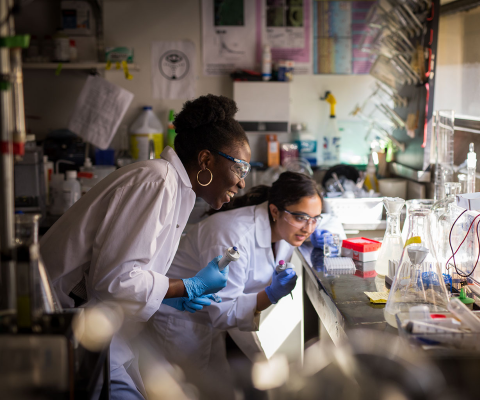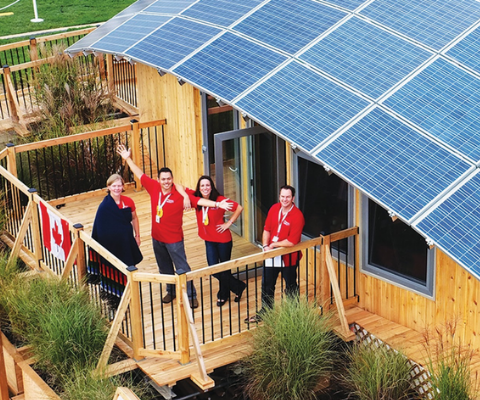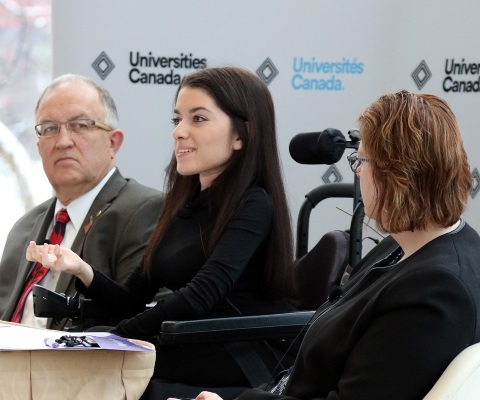Pre-budget 2021 submission: Investing in universities for a sustainable COVID-19 recovery

Since early this year, Canada’s universities have been essential partners in combatting the COVID-19 pandemic. They are conducting critical research to find a vaccine, supplying PPE and chemical reagents, repurposing facilities to assist front-line workers, and working with communities and businesses to address the pandemic’s social and economic impacts. They moved 1.4 million learners online in 10 days and are investing to ensure that this autumn all students have access to a safe, high quality learning environment, regardless of how classes are delivered.
As Canada moves toward recovery from the impacts of the COVID-19 pandemic, Canada’s universities will help accelerate the country’s ability to build back better. They will ensure quality education for domestic and international students, upskill and reskill those displaced from the workforce, and will drive the research and innovation we need for our economic and social recovery. They will be regional hubs for employment and immigration, mitigating the varied impact that COVID-19 is having across the country. In line with the Sustainable Development Goals, they can also ensure a green, equitable and just recovery. Canada’s universities can be a key resource to government, business and local communities. But to do this, Canada’s universities must be strong.
At this time, recognizing that the pandemic will continue to develop over the fall, we recommend investment in four key areas:
- International student retention and recruitment
- Access, upskilling and reskilling measures for Canadians
- Green, digital and accessible infrastructure
- Research and knowledge mobilization
Recommendation 1:
Ensure international students can continue to study in Canada by:
- Recognizing the $21.6 billion dollar impact of international students in Canada, strengthening coordination across departments and investing in processes to safely and efficiently welcome international students to Canada;
- Cost-sharing safe arrival and quarantine measures with universities;
- Offsetting international student losses with a dedicated federal transfer to universities to compensate for a decline in international student enrolment; and,
- Investing in branding, recruitment and visa processing to support recovery and diversification efforts.
Recommendation 2:
Invest in access, upskilling and reskilling by:
- Creating non-taxable training vouchers for workers displaced by the economic impacts of the pandemic that can be used for immediate short-cycle PSE training;
- Implementing enhanced flexibility and funding for the Canada Training Benefit, so the program becomes a training allowance responsive to upskilling, reskilling and lifelong learning needs of Canadians;
- Providing funding for institutions to develop accessible short courses in key demand areas; and,
- Extending changes made to the Canada Student Loan Program through the end of 2021.
Recommendation 3:
Invest in green, digital and accessible university infrastructure as part of the federal government’s COVID-19 recovery plan.
Recommendation 4:
Invest in research and innovation to solve challenges that matter to Canadians, and ensure Canada’s social and economic recovery by:
- Making significant investments in fundamental research to ensure a robust and diverse corps of researchers solving the challenges that matter to Canadians;
- Opening up eligibility to leadership by universities in flagship innovation programs such as the Strategic Innovation Fund, Stream 4 & 5: R&D collaborations and networks, as well as other future R&D initiatives with industry and community;
- Fostering strategic technology and talent development through a new fund dedicated to regional “Innovation Adoption Hubs” working at the nexus between universities and the private sector;
- Investing in a new higher education knowledge mobilization fund to leverage the ideas and intellectual property generated by universities for economic recovery and community growth; and,
- Ramping up the Lab2Market pilot nationally and providing stable, centralized funding to support its growth.
Tagged: Co-ops and internships, Global connections, Research and innovation




